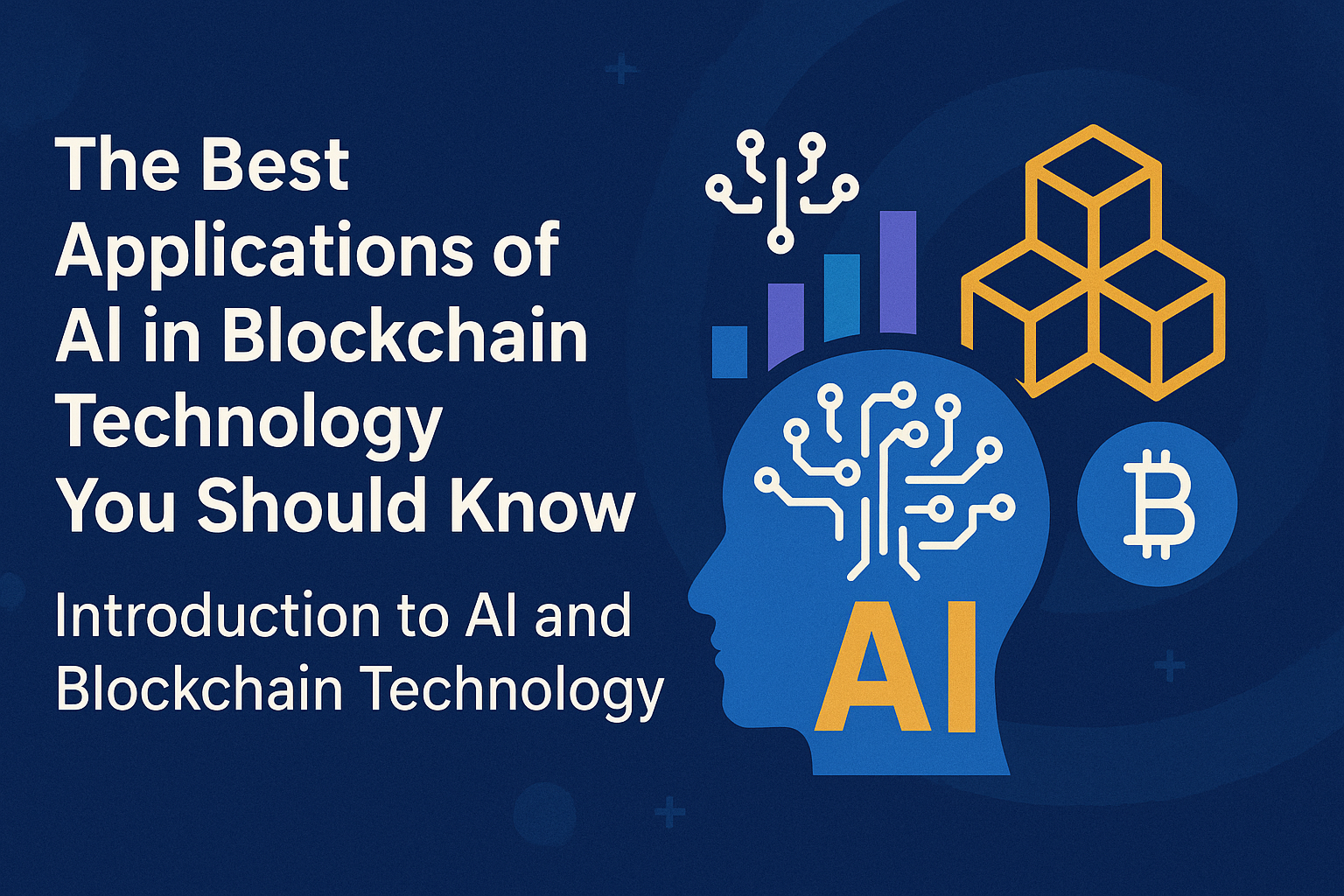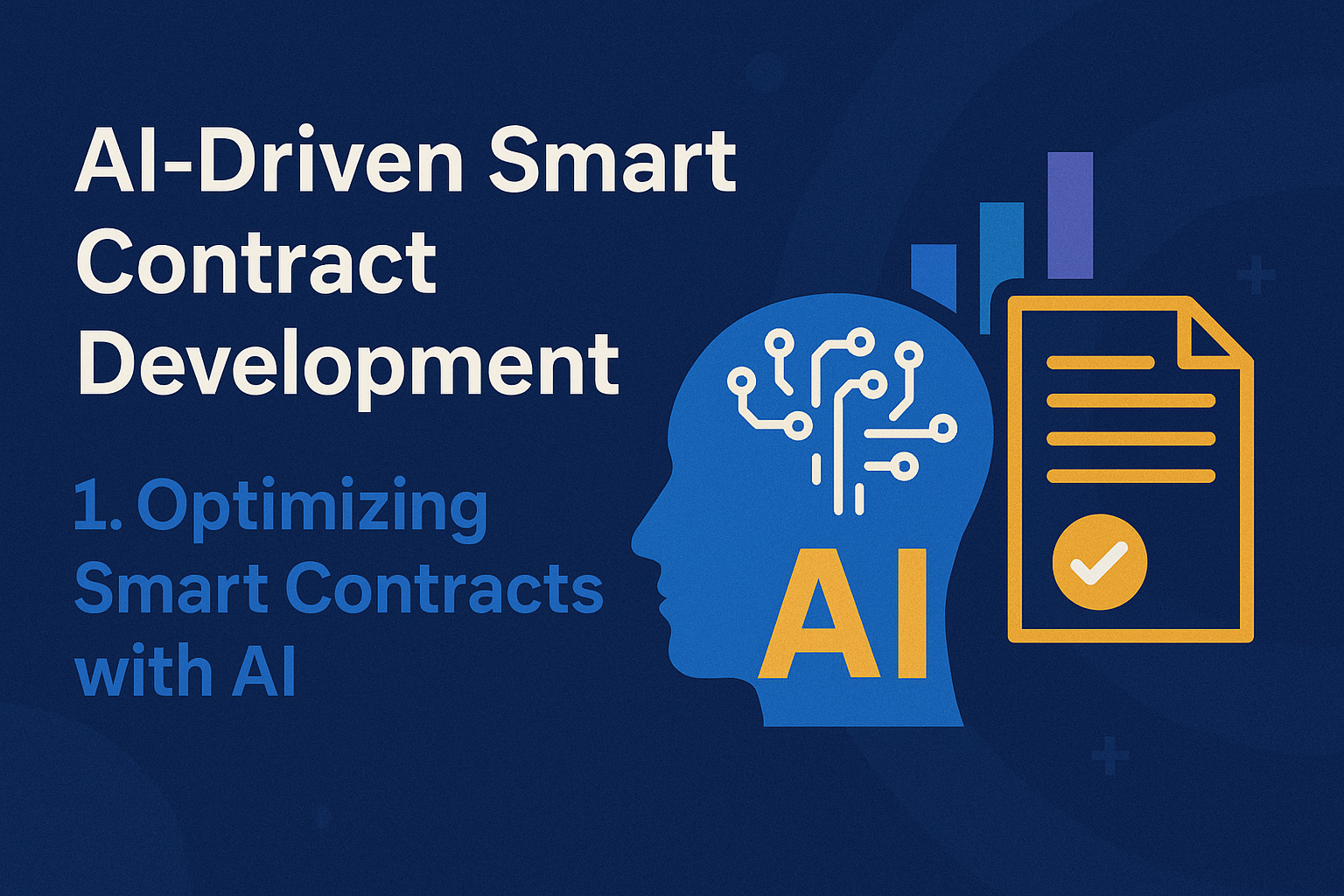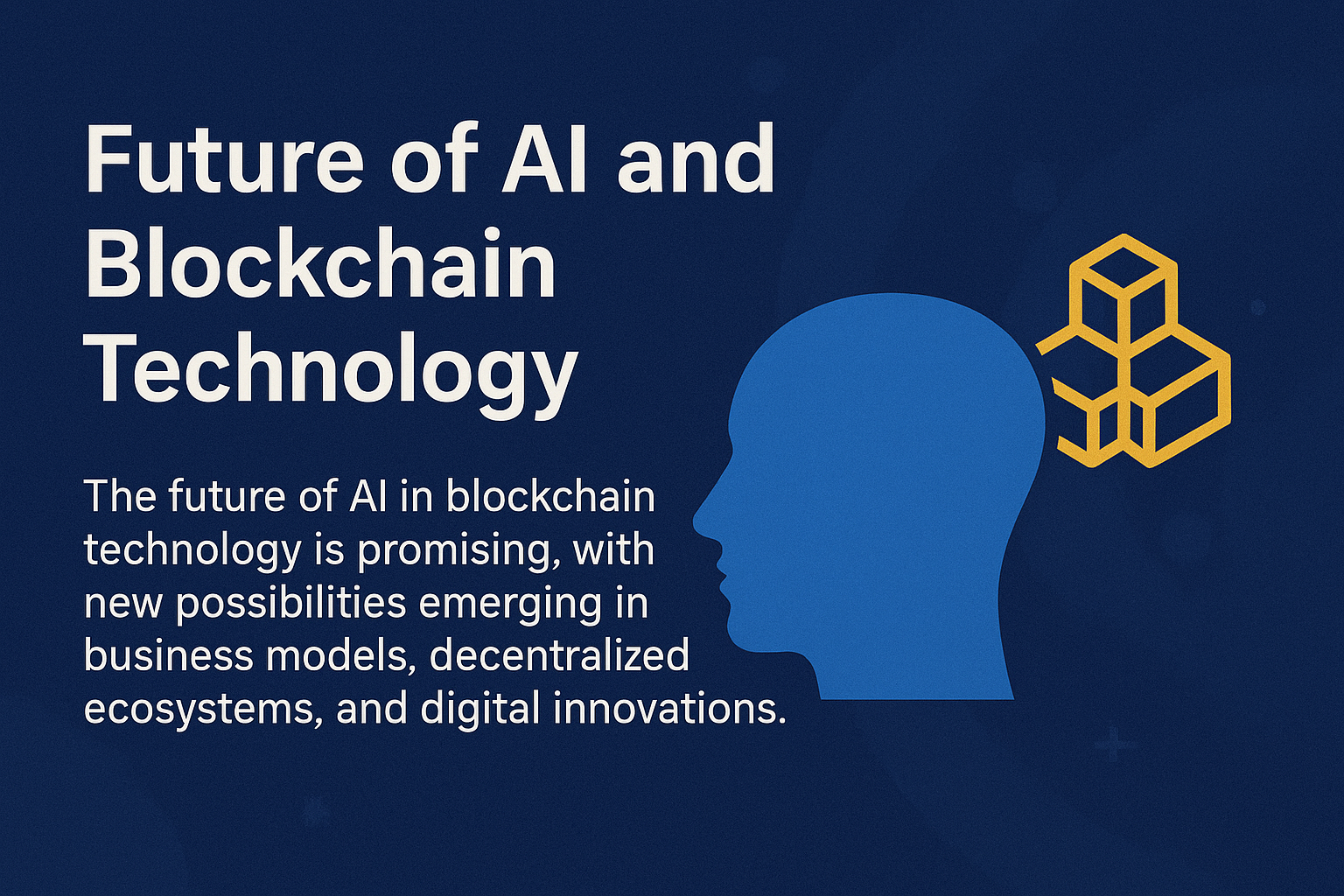
Introduction to AI and Blockchain Technology
The convergence of AI in blockchain technology is shaping the future of data security, smart contracts, predictive analytics, and decentralized data storage. As emerging technologies, AI and blockchain offer transformative solutions across various industries, including finance, healthcare, and supply chain management.
This article explores the best applications of AI and blockchain integration, how these technologies complement each other, and the future possibilities in business processes and decentralized ecosystems.
What is AI and Blockchain Technology?
Understanding Artificial Intelligence (AI)
Artificial intelligence (AI) refers to the development of AI models and machine learning algorithms that enable systems to perform tasks that typically require human intelligence. These tasks include:
-
Natural language processing (NLP) for understanding human speech.
-
Predictive analysis for forecasting trends.
-
Neural networks that mimic the human brain for decision-making.
-
Automated data mining to extract insights from vast amounts of data.
Understanding Blockchain Technology
Blockchain technology is a decentralized, immutable, and transparent distributed ledger that records financial transactions, supply chain processes, and smart contract executions securely. Blockchain enables:
-
Decentralized data storage, eliminating reliance on a central authority.
-
Secure transactions using cryptographic techniques.
-
Real-time data integrity through consensus mechanisms.
-
Transparency and traceability across networks.
The integration of AI and blockchain unlocks a new era of digital innovations, optimizing business models, energy consumption, and the digital landscape.
Benefits of Integrating AI and Blockchain Technology
1. Enhanced Data Security and Integrity
One of the biggest advantages of AI and blockchain integration is improved data security and data integrity. Blockchain’s decentralized architecture ensures that data cannot be tampered with, while AI algorithms detect anomalies and potential threats in real time.
-
AI-powered security monitoring detects malicious activities.
-
Blockchain’s security ensures immutable and transparent data storage.
-
Smart contracts enforce automated security protocols to prevent breaches.
2. Improved Predictive Analysis and Decision-Making
AI’s predictive capabilities enhance decision-making processes in blockchain networks. Predictive analytics powered by AI allows businesses to:
-
Forecast financial transactions in the crypto market.
-
Detect fraud in payment processes.
-
Automate real-time data processing to optimize blockchain networks.
3. Seamless Integration with Business Processes
Companies across industries are leveraging AI in blockchain technology to improve supply chain management, healthcare data sharing, and financial systems.
-
Supply chains benefit from AI-driven predictive logistics and blockchain’s secure tracking.
-
Healthcare industry enhances medical records management using AI and blockchain-based data storage.
-
Finance sector improves e-voting procedures, fraud detection, and smart contract applications.
Challenges of Integrating AI and Blockchain Technology
1. Scalability and Interoperability
The blockchain scaling challenge remains a major obstacle to AI and blockchain integration. AI requires large amounts of training data, but blockchain networks often struggle with high transaction costs and slow processing speeds.
Solutions include:
-
Layer 2 blockchain solutions to improve scalability.
-
Optimized energy consumption to reduce computational costs.
-
Cross-chain interoperability frameworks for better AI-blockchain convergence.
2. Data Privacy and Compliance
Sensitive data stored on a blockchain ecosystem must comply with regulations like GDPR and HIPAA. AI enhances data privacy but raises concerns regarding bias in AI models and unauthorized data access.
-
Zero-knowledge proofs ensure privacy in blockchain transactions.
-
Federated learning allows AI training on decentralized blockchain data.
-
Regulatory frameworks must evolve to support blockchain and AI applications.
AI-Driven Smart Contract Development

1. Optimizing Smart Contracts with AI
Smart contracts automate business agreements on the blockchain, but errors and inefficiencies can lead to security risks. AI-driven smart contract development improves:
-
Code auditing by detecting vulnerabilities.
-
Automated execution of contract terms.
-
Error prevention to reduce potential loopholes.
2. AI’s Role in Self-Executing Smart Contracts
-
AI optimizes contract logic for efficiency.
-
Predictive analytics adjust contract conditions in real-time.
-
AI models improve legal compliance in contract execution.
Example: Ethereum’s AI-powered smart contract solutions enhance automation in financial transactions and decentralized applications (dApps).
Blockchain Technology Applications
1. Decentralized Autonomous Organizations (DAOs)
AI and blockchain enable self-governing entities called DAOs, where decision-making is automated through smart contracts.
-
AI-driven governance models analyze DAO activities.
-
Predictive analysis enhances voting procedures and decentralized operations.
2. Innovative Data Management
Blockchain ensures immutable data records, while AI improves data mining, data sharing, and analytics.
-
Decentralized data storage prevents hacking.
-
AI-driven insights enhance data processing.
3. Transaction Efficiency and Speed
AI improves blockchain’s transaction efficiency by optimizing:
-
Transaction validation processes.
-
Fraud detection in financial transactions.
-
Smart contract execution speeds.
Industry Use Cases
1. Healthcare Industry
-
AI-driven diagnosis models securely store medical records.
-
Blockchain AI models improve patient data security.
2. Supply Chain Management
-
AI and blockchain integration enhance product tracking and logistics.
-
Predictive analytics forecast demand fluctuations.
3. Finance Sector
-
Blockchain-based digital identity improves payment security.
-
AI algorithms detect fraud in financial transactions.
Future of AI and Blockchain Technology

The future of AI in blockchain technology is promising, with new possibilities emerging in business models, decentralized ecosystems, and digital innovations.
Key Trends to Watch:
-
Generative AI will revolutionize blockchain-powered digital assets.
-
Blockchain’s security will enhance AI training data integrity.
-
Seamless integration of AI and blockchain in existing processes.
Conclusion
The integration of AI and blockchain offers transformative advantages, including improved data management, enhanced security, optimized business processes, and automated smart contract execution. While challenges remain in scalability, data privacy, and regulation, the future holds exciting possibilities for the blockchain ecosystem.
For further reading on blockchain AI advancements, visit IBM Blockchain and MIT AI Lab.


Your article helped me a lot, is there any more related content? Thanks!